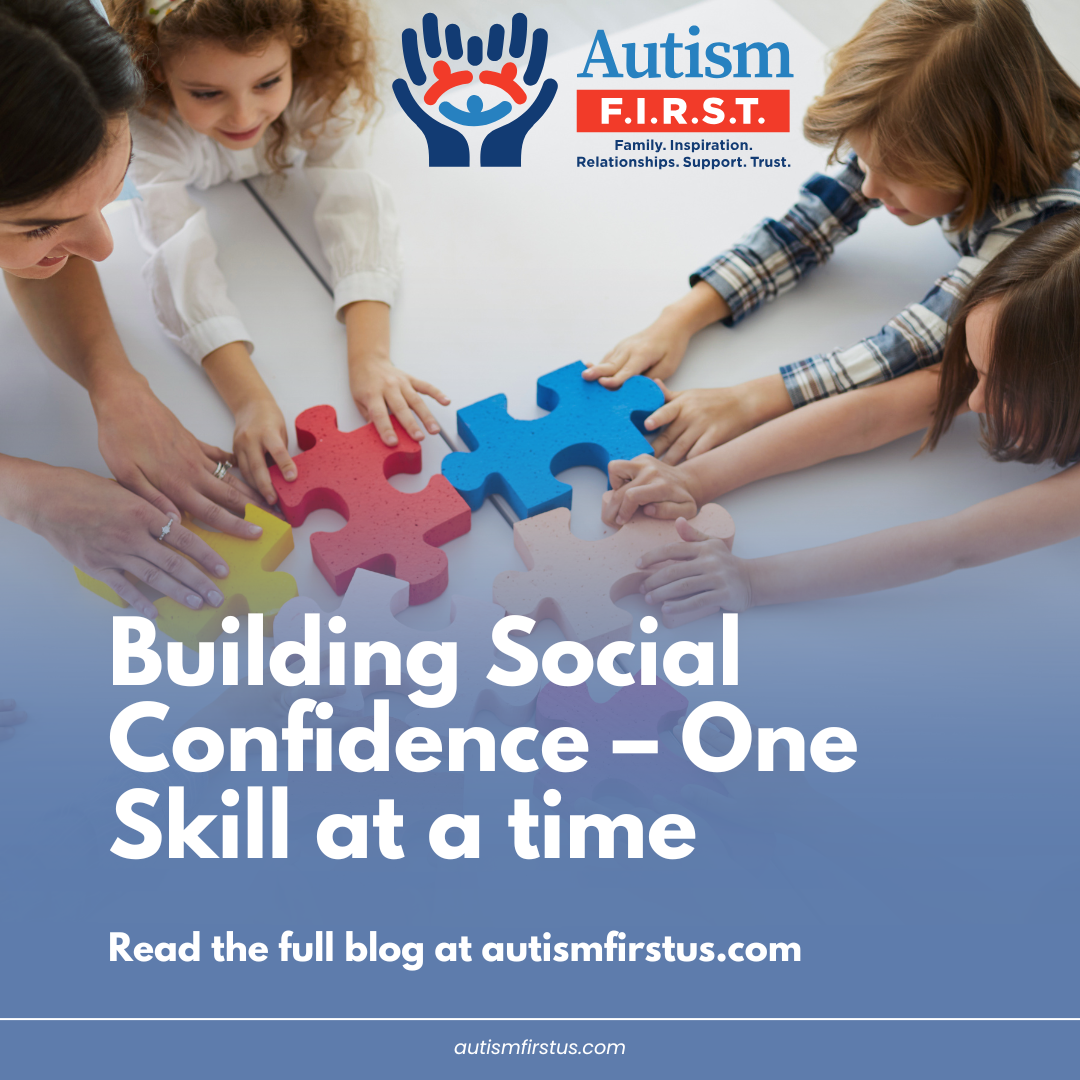Building Social Confidence in Children with Autism: Tips from Our Therapy Team
Summer brings a chance to relax, explore, and for many children–grow socially. At Autism F.I.R.S.T., we believe that social confidence is just as important as academic or behavioral progress, especially for children on the autism spectrum.
For many of our learners, developing comfort in social settings doesn’t happen overnight. It takes time, practice, and the right supports. That’s why this July, we’re focusing on our theme:
Building Social Confidence – One Skill at a Time.

Why Social Confidence Matters
Social confidence isn’t just about making friends–it’s about:
- Feeling safe and comfortable in group settings
- Understanding how to initiate and respond in conversations
- Learning to regulate emotions while interacting with others
- Building resilience when things don’t go as planned
Whether it’s during a therapy session, a birthday party, or a trip to the park, these skills help children engage with the world around them in a meaningful ways.
How We Support Social Confidence at Autism F.I.R.S.T.
At Autism F.I.R.S.T., our team of therapists uses evidence-based practices and engaging, play-based approaches to support social development. One of our favorite places to do this is during our Summer Social Skills Camp, designed for children in grades K-5.
Through carefully designed group sessions, we target skills like:
- Turn-taking and sharing
- Reading body language and facial expressions (non-verbal behavior)
- Asking and answering questions
- Cooperative play and following group instructions
- Coping with sensory and emotional overwhelm
As one of our behavior therapists, Kiley, shares:
“My favorite peer-play activity is Magnet Tiles, because the kids get to be creative and make their own creations–then they get to play with them after”.
These kinds of activities create opportunities for learning, practicing, and celebrating social wins-big and small.
Ways Families Can Support Social Confidence at Home
Here are a few simple strategies to keep building social skills beyond the clinic:
- Use Visual Scripts
Create visual aids that show how to greet someone, ask to join a game, or express a need. Practicing with visuals helps ease anxiety and builds familiarity.
- Model & Role Play
Use dolls, toys, or yourself to act out common social situations like ordering food, meeting a new friend, or waiting your turn.
- Build In Daily Practice
Game nights, cooking together, or short outdoor playdates can offer natural chances to practice sharing, following directions, or asking for help.
- Celebrate Progress
Acknowledge efforts, not just outcomes. “You waited your turn so patiently!” goes a long way in reinforcing confidence.
Join Us at Our July Open House!
Want to see how we support social skill growth in action?
We’re hosting an Open House at our clinics on July 16 (Herndon) and 17th (Chantilly), from 5 to 7 PM. We’d love to meet you! It’s a great opportunity to tour the space, talk to our team, and learn more about our services–including our Summer Social Skills Camp.
Building Social Confidence
Building social confidence in children with autism is a journey, and one that’s built on patience, practice, and partnership. Whether in a group therapy session or a game at home, every interaction helps. We’re honored to walk alongside families through each step of that journey–and we’re here to help your child grow, one skill at a time.
